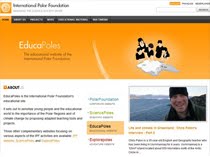This is in many ways a personal journey. In preparing for it I imagine I am going on an extended summer kayak holiday, like I have done with Jane, and alone, the past three summers. I want to keep it simple and I want to keep it safe.
Just like last year I will be leaving a detailed plan of my route and personal information with the local police and agreeing with Lars, in Denmark, as to how I keep in touch, and how he will update the different web pages that enable friends, family and interested folk to follow the expedition.
Is "expedition" the correct word for this journey? I believe it is in that I will be exploring the culture of the Greenlandic people living in Uummannaq fjord, and, not least, exploring my own self and discovering who I really am when completely alone.
Just how alone will I be? This aspect of the journey seems to be an interesting topic of speculation amongst several people I know. I will be alone in the fact that I am paddling and camping by myself. I am responsible for my own safety and my own actions. Is it risky to paddle alone? Sure it is. But it is a calculated risk. I have considered the pros and cons of travelling alone and I believe it is a risk worth taking, one that I would not even consider were it not that I felt I had the skills and experience necessary to safely complete the journey. Thus the mental preparation is just as important as the physical and logistical. I have to know I can do this.
The concerns and interest of others are important especially as they give me good reason to evaluate my plan again and again. However, if I can process the questions raised and then give qualified answers that justify my continued argument for going ahead with my plans then I am confident I can do so. Again, I would not undertake this journey if I did not think I could do so safely. I believe that one should not enter a wilderness area without the skills to get safely out of it again - without help.
I have been paddling canoes and kayaks in remote areas for many years now. I started as a teenager paddling unfinished canoe shells made by Pyranha on the Bridgewater Canal near my home in Preston Brook, England, UK. I dreamed of paddling wilder waters while I negotiated grumpy fishermen casting their long lines from the banks of the canal. Uummannaq is a long way from the Bridgewater Canal in almost every way. Thankfully I have put a lot of river, lake and sea miles under my hull since then.
There are of course unseen events that may play a role in my journey and these are to be expected. The trick is to adapt to the unpredictable and change one's plan accordingly in order to be safe. If the weather kicks up and I am at sea then I will take the shortest and/or safest route back to land depending upon the conditions. If I am stuck in camp for a few days because of the weather then so be it. If I cannot reach a settlement because of the ice conditions or sheer size and concentration of icebergs then I will not force it. Large open crossings will be attempted when I am well-rested and the conditions are favourable. You get the picture.
However, it is local knowledge that is my not so secret weapon in this endeavour. I am meeting with local hunters and people who sail the waters regularly to ask their advice, plot strong tides and tricky areas on my map, and, not least, hear their stories and adventures from decades of sailing in Uummannaq fjord. I may see these same hunters, fishermen and tourist boat skippers as I paddle. In fact I count on it. With 24hour sunlight it would be surprising not to meet someone fishing at 4am on a Thursday morning!
The bottom line is that after all my preparation, choice of equipment, drying of food, gathering of knowledge, training, you name it, if the unexpected happens then I deal with it in that moment and react accordingly.
No heroics.
Just keep paddlin'.
























